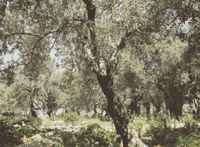

In this parable, Jesus compared the kingdom of heaven to
ten virgins who went out to meet the bridegroom. (Matt 25:1) Five of the
virgins were foolish and five of them were wise. The foolish virgins did
not take oil for their lamps (V3) while the wise virgins did. (V4). All
the virgins subsequently went to sleep while waiting for the bridegroom
(V5).
When the bridegroom arrived they all began to trim their lamps, but the
foolish virgins did not have any oil. (Matt 25:6-8). While the foolish
virgins were away buying oil, the door to the wedding feast was shut after
the wise virgins had entered. When the foolish virgins returned, they
begged to get into the feast but were told that they were not known.
The main point of the parable seems to be that only those who are watchful
for the kingdom of God and alert for the coming of the Son of Man (that
is, believers) will be able to enter
it. (Matt 25:13). Contextually, this refers to true believers who are
living during the future tribulation period, prior to the second coming
of Christ. His coming will be sudden, when it is not expected. Believers
are those who anticipate Jesus' coming and seek to be prepared for it,
living their lives accordingly. Jesus' return will terminate the opportunity
for people to "prepare themselves" (trust in Jesus) to enter
His kingdom. Only those who are previously prepared (saved,
by trusting in Christ) will be permitted to enter. No unprepared
(unsaved) person will be permitted to enter.
|
"Watch therefore, for you know neither the
day nor the hour in which the Son of Man is coming." |

